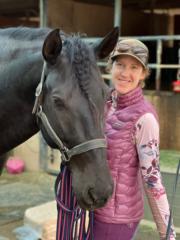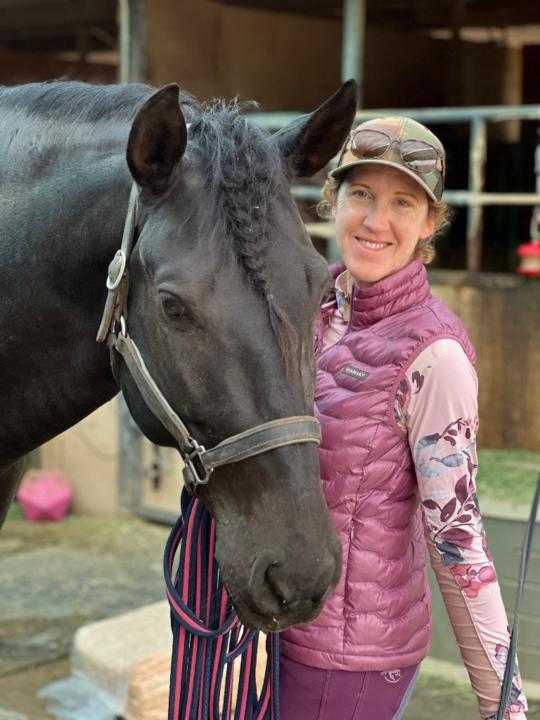Activity
Mon
Wed
Fri
Sun
Feb
Mar
Apr
May
Jun
Jul
Aug
Sep
Oct
Nov
Dec
What is this?
Less
More
Owned by Nicole
A supportive equestrian community to build confidence, refine skills, and grow as a rider—no matter your level. Ride with clarity & confidence!
Memberships
Equestrian Fitness (Free)
2k members • Free
Skoolers
182.4k members • Free
Skool Speedrun (Free)
11.7k members • Free
28 contributions to Confident Rider Blueprint
End of 2025 Goal Post
Hello everyone. I took a little bit of a break from this group - not because I felt any less passionate about it, but because I had a lot of in-person work to do with riders and that divided my attention. One of my big goals for 2026 is to continue to grow this community. I feel strongly that a supportive community is such an important part of a rider's confidence journey. Please bring any and all of your questions to this group. The questions that you all raise are not questions that only you have - and sometimes other people will ask questions we didn't know we had either. If you're not already, follow me on IG @nwdressage and Tiktok @nwdressage2 where I already have some video content posted. But in the meantime, keep your ideas coming. Answer the following two questions: What was your toughest moment this year? What was your best moment?
0 likes • 19d
I'll go first! I think that my best moment of the year was taking one of my horses to a CPEDI at Desert Horse Park. It was an amazing experience and I'm so proud of how he and his rider did showing Internationally for the first time. My toughest moment was probably not making the progress in this group that I had hoped for! But that is normal when we have busy lives. Creating a routine that will help us move forward is key.
Keep Going
One of the hardest things for riders to do when they face a challenge is to keep going. It's not because you don't want to keep going - it's because it's hard! Break things down into manageable pieces. You can't learn Chopin if you don't take the time to learn each note of the scale, so put in the time and keep going towards each SMALL step because they add up.
2
0

Confidence Goes Both Ways
Many riders rely on their horse to give them confidence. And many horses are "confidence building types" with laid back personalities and a willingness to overlook a rider's bobbles. But the job of the rider is to direct the horse and for our horses to do their best, they need to get confidence from us as much as we get confidence from them. I like to remind riders of this because in order to set ourselves up for long term success, we often need to work on ourselves before we can work on the horse. This means that you should set small goals for yourself and then, as you meet them, set a similar goal for your horse. What does this look like? Let me give you an example: If you're not feeling secure about cantering, don't worry that the canter is imperfect or your horse isn't staying in the canter for more than a few steps when you ask. Instead, focus on riding a good trot into the canter transition - and getting some help from a ground person or in the round pen. After you feel you can comfortably maintain the trot into the canter, then you can refocus on your horse and start to build more stamina in the canter. If you build up a little more security in your transition, you'll ride a better canter and your horse will feel more confident to build it with you.
0
0

Coaching Red Flags?
Have you ever had a coach where, in hindsight, there were some red flags for training with them? Bad coaching can really have a negative impact on a rider's confidence. One of the hardest things to do is to walk away from a trainer where there are red flags because the trainer can exert a lot of control over how the rider feels about their decisions. Keep your mental health and your horse's interest in your heart! This isn't to say that some lessons might be more challenging than others, but there is a difference between a challenge and something more negative.
1
0
1-10 of 28
@nicole-weston-8338
Dressage trainer helping riders build confidence, communication, and connection with their horses. Learn, grow, and ride with clarity!
Active 19d ago
Joined Mar 3, 2025
Los Angeles, CA
Powered by

